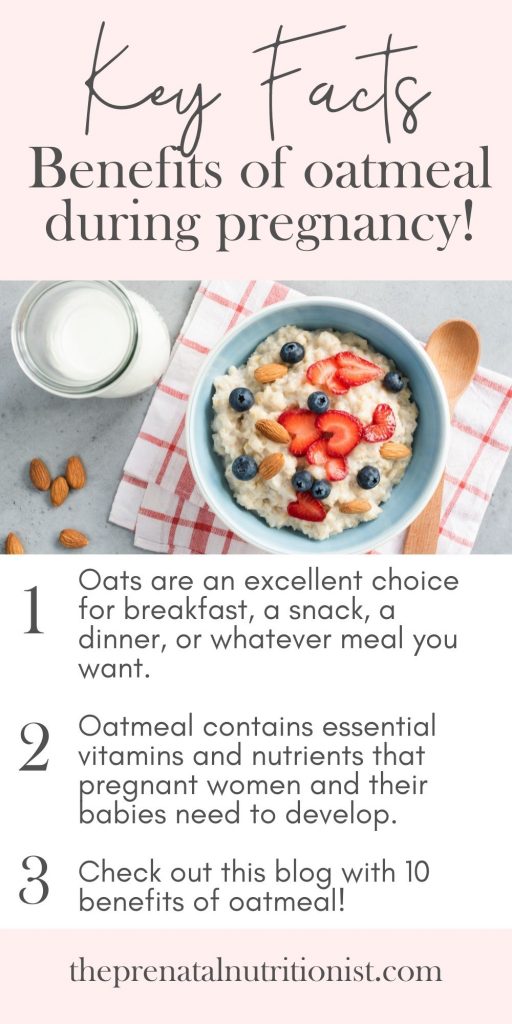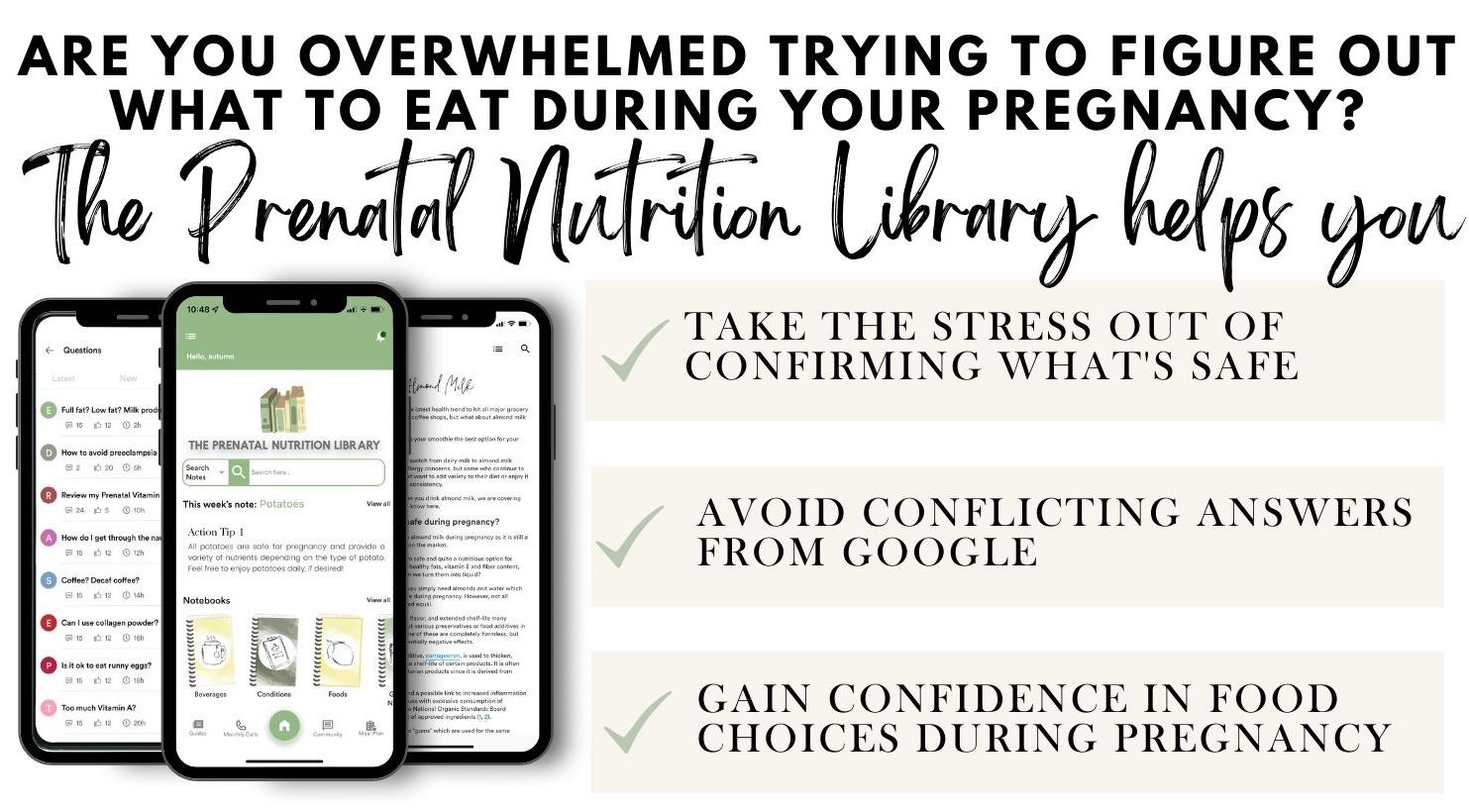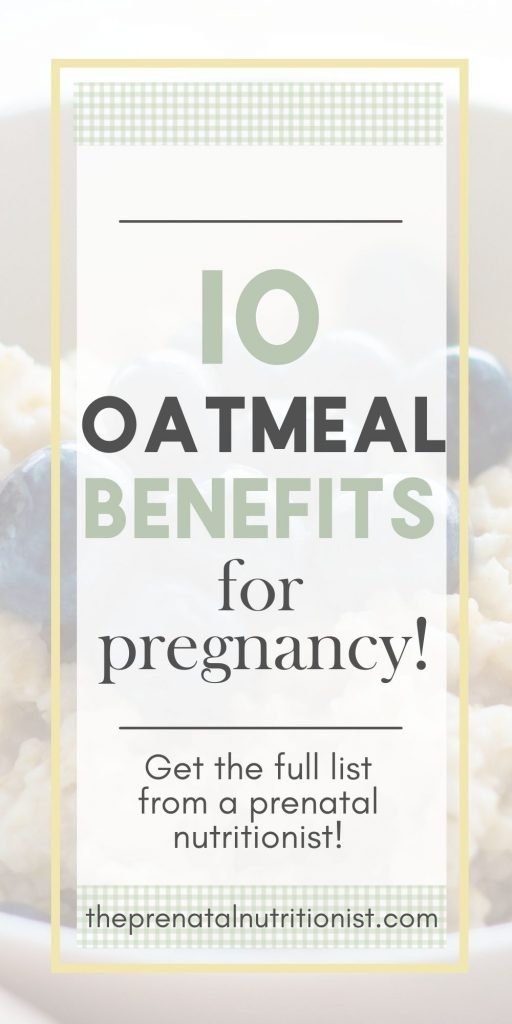
Oatmeal is one of the healthiest and most versatile foods out there – especially for pregnant women. Oats can be an excellent choice for breakfast, a snack, a “breakfast for dinner” night, or whatever meal you want and are safe during pregnancy. There are tons of ways you can eat and drink oatmeal during pregnancy, and you totally should! Oats are rich in a plethora of essential vitamins and nutrients that pregnant women and their babies need to grow and develop. Plus, these nutrients have a ton of other health benefits during pregnancy as well.
You could eat a version of oats as often as every single day during pregnancy if you really love them because they are safe to eat. But, it’s good practice to remember that everything is good in moderation. Thus, it’s important to mix up your pregnancy diet to ensure you’re getting all the essential vitamins and minerals required for a happy and healthy pregnancy. So what are these vitamins and minerals and how to do I make sure I get what I need during pregnancy? Check out The Prenatal Nutrition Library (use code 50off, for 50% of your first month!), to gain confidence and get your pregnancy nutrition questions answered including MORE information about oatmeal and oats in your pregnancy diet! It’s also important to make sure you’re eating the right type of oatmeal and pair it appropriately, but we’ll get to that later.
For now, without further adieu, let’s go over some of the main benefits of eating oatmeal during pregnancy!
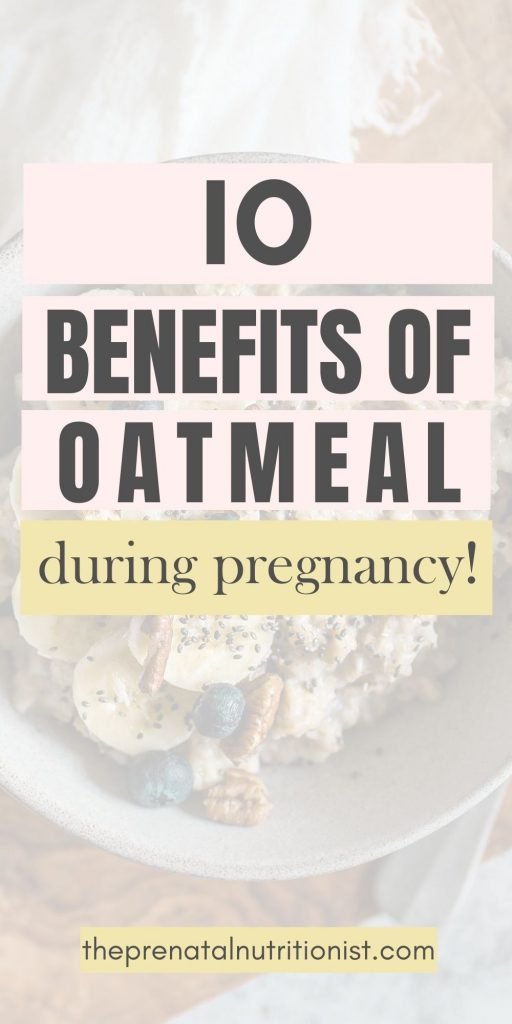
10 Oatmeal Benefits For Pregnancy
Contains complex carbohydrates
The body requires two different types of carbohydrates – simple and complex. While both are necessary for a healthy pregnancy diet, complex carbohydrates are particularly important for a few reasons. These reasons include that they break down at a slow pace and are digested by the body at a slower rate. During pregnancy, this can help to keep your blood sugar levels stable which is important for all pregnant mamas not only the ones who are diagnosed with gestational diabetes. Keeping your blood sugars stable also helps to promote a gradual and healthy weight gain during pregnancy.
Boosts energy levels
Although an individualized number, many studies suggest pregnant people should consume between 75 – 100 grams of protein each day to keep their energy levels high, and more as their pregnancy progresses. This allows for plenty of energy to tackle your day-to-day work and ensure the proper growth and development of the baby.
One cup of steel-cut cooked oats contains around 7 grams of protein as is and about 36 grams of carbohydrates. That’s just the oats, so if you cook them with an egg, add nuts, seeds, or nut butter, you’ll add up the protein even more so! Oatmeal is just one of many rich sources of plant-based protein you can consume during pregnancy. For more vegetarian and vegan sources of protein, click here!
Helps keep you regular
Throughout pregnancy, women should aim to consume at least 28 grams of fiber each and every day. This helps expecting mothers stay regular and helps to prevent common side effects of pregnancy like upset stomach and constipation. Generally, one cup of oats contains around 5-6 grams of dietary fiber, which is a good start, but adding some berries and chia seeds will boost your fiber intake even more!
Contains folic acid
Instant oats are generally enriched with folic acid, meaning it is taken out during processing and then added back. Some oats are not enriched and naturally contain a small amount of folate.
Women should consume around 400 micrograms (mcg) of folic acid per day during gestation. Folic acid or folate is super important during pregnancy to help prevent serious birth defects like anencephaly and spina bifida. In fact, because folic acid is extremely helpful in the prevention of these common birth defects, it is recommended to get plenty of folate before pregnancy as well. Just one cup of cooked oats contains over 80 mcg of folate or just under ¼ of your required daily value.
Helps control healthy weight gain
As we mentioned above, the complex carbs and soluble fibers that you get from eating oats during pregnancy are broken down and digested by the body at a slower rate. This can help expecting mothers manage their weight gain by helping them feel full longer. Thus, reducing the urge to eat less nutrient-dense snacks in between meals. But don’t forget the protein add-ons! Consuming oats can also help pregnant women manage weight gain by reducing those pesky sugar cravings, too!
Next time you’re craving a sweet breakfast, oatmeal with cinnamon, banana slices, almond butter, and walnuts. And, if your oatmeal isn’t quite sweet enough plain, you can add a drizzle of honey or maple syrup.
It may help reduce the risk of anemia
During pregnancy, women should consume at least 27 milligrams (mg) of iron each day. And more if they do not eat much or any meat. Iron is essential during pregnancy because it promotes the production of healthy red blood cells. Throughout gestation, the body requires extra red blood cells to support the healthy growth and development of your baby. Without these extra red blood cells, you may experience gestational anemia – a dangerous condition for both mother and baby.
Because iron isn’t created by the body, it’s important to make absolutely sure that you’re getting plenty of iron on a daily basis. Regular unfortified oats contain around 2.1 mg of iron, but some fortified options contain up to 7 mg. It’s also important to get your iron tested before and throughout pregnancy, because as mentioned, it can be dangerous for both mom and baby if your iron levels get too low. Food sources of iron are very important and should be included regularly but you may also need a supplement.
Supports the creation of bone and cartilage
Oatmeal contains a plethora of essential vitamins and minerals. Some of which directly contribute to the proper growth and development of mother and baby’s bones and cartilage. These vitamins and minerals include magnesium, potassium, calcium, phosphorus, and copper. Getting plenty of these vitamins and minerals is essential to reduce the risk of a variety of birth defects involving bones, cartilage, and more.
Promotes development of bodily systems
Like oatmeal contains nutrients that support the proper growth and development of bones and cartilage, it also contains nutrients that directly support the development of certain bodily systems. These systems include the heart, blood vessels, including blood pressure, and skeletal and nervous systems.
The vitamins and minerals that contribute to the development of these bodily systems include copper, phosphorus, thiamin, riboflavin, niacin, and vitamin B6. And let’s not forget about all of the other vitamins and minerals listed elsewhere in this article either. All of those also contribute to the healthy development of the body systems mentioned in this paragraph as well. Of course, one food is not magic, your overall diet is what contributes to the growth and development of your baby!
Supports the immune system
During pregnancy, the immune system is working double-time to keep mother and baby safe and healthy. To help give your immune system the extra kick it needs, try oatmeal. Oatmeal contains some vitamins and minerals that directly contribute to the health of your immune system. Nutrients found in oatmeal that support the immune system include vitamins E, B vitamins, and iron. And, the best part is, that these vitamins and minerals also play other important roles during pregnancy as well. So, it’s a win-win every time.
Easy on the stomach
As most expecting mothers already know, common symptoms of pregnancy can include upset stomach, constipation, and the dreaded morning sickness. When you’re dealing with these symptoms, grab some oatmeal! Oatmeal is easily digested by the body and thus, is very easy on the stomach. Plus, because it contains a plethora of essential vitamins and minerals, it’s an excellent food to consume to replenish the body after sickness.
If you can, try adding higher protein milk like cow’s milk, plus nut butter, seeds, and fruit to boost its nutrient value of it even more!
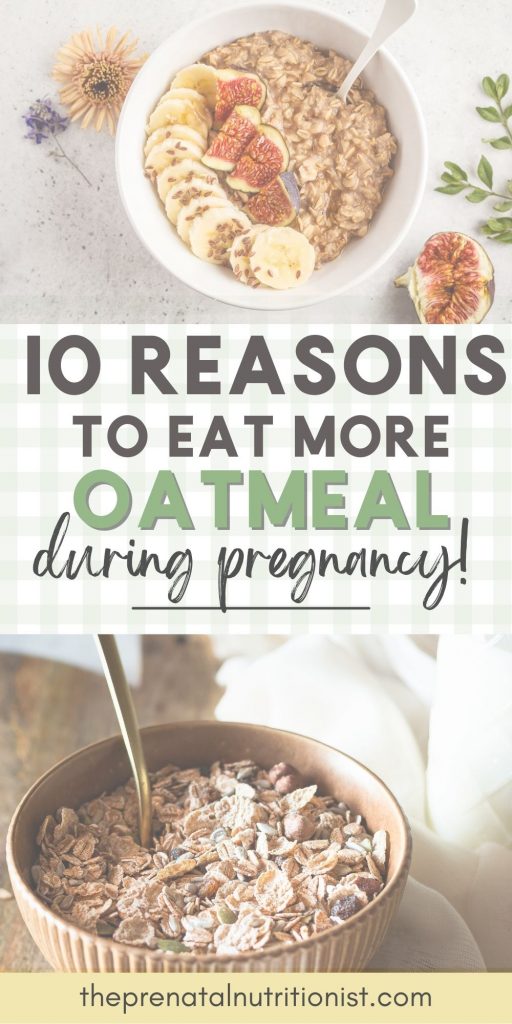
Best Way To Eat Oatmeal During Pregnancy
Now that we have been over the benefits of oats during pregnancy, how can you satisfy your taste buds? Need some inspiration? We’ve got you covered. Other than traditional oatmeal, you can try steel-cut oatmeal, rolled oats, overnight oats, use oat flour in baked goods, or try adding some oats to your yogurt, trail mix, or ice cream. You can also bake them into your favorite pregnancy-friendly sweets or homemade granola bars. Did you know you can also add oats to all your favorite smoothies?
No matter how you choose to incorporate this food into your diet, it’s important to remember that not all oats and oatmeal are created equal. When it comes to oats or steel cut oats, it’s best to limit more processed oatmeals that include added sugars or artificial sweeteners. Instead, stick to your organic, unsweetened oats and add your own sweeteners like honey or maple syrup as needed.
For more recipes and prenatal nutrition inspiration, head on over to The Prenatal Nutrition Library (use code 50ff for an EXCLUSIVE first month offer) or download the app. And, for more blogs like this one, be sure to check out The Prenatal Nutritionist Blog. There, you will find a multitude of prenatal nutrition information and the answers to most of your frequently asked questions. Until next time, we wish you the best of luck as you navigate the world of motherhood!
